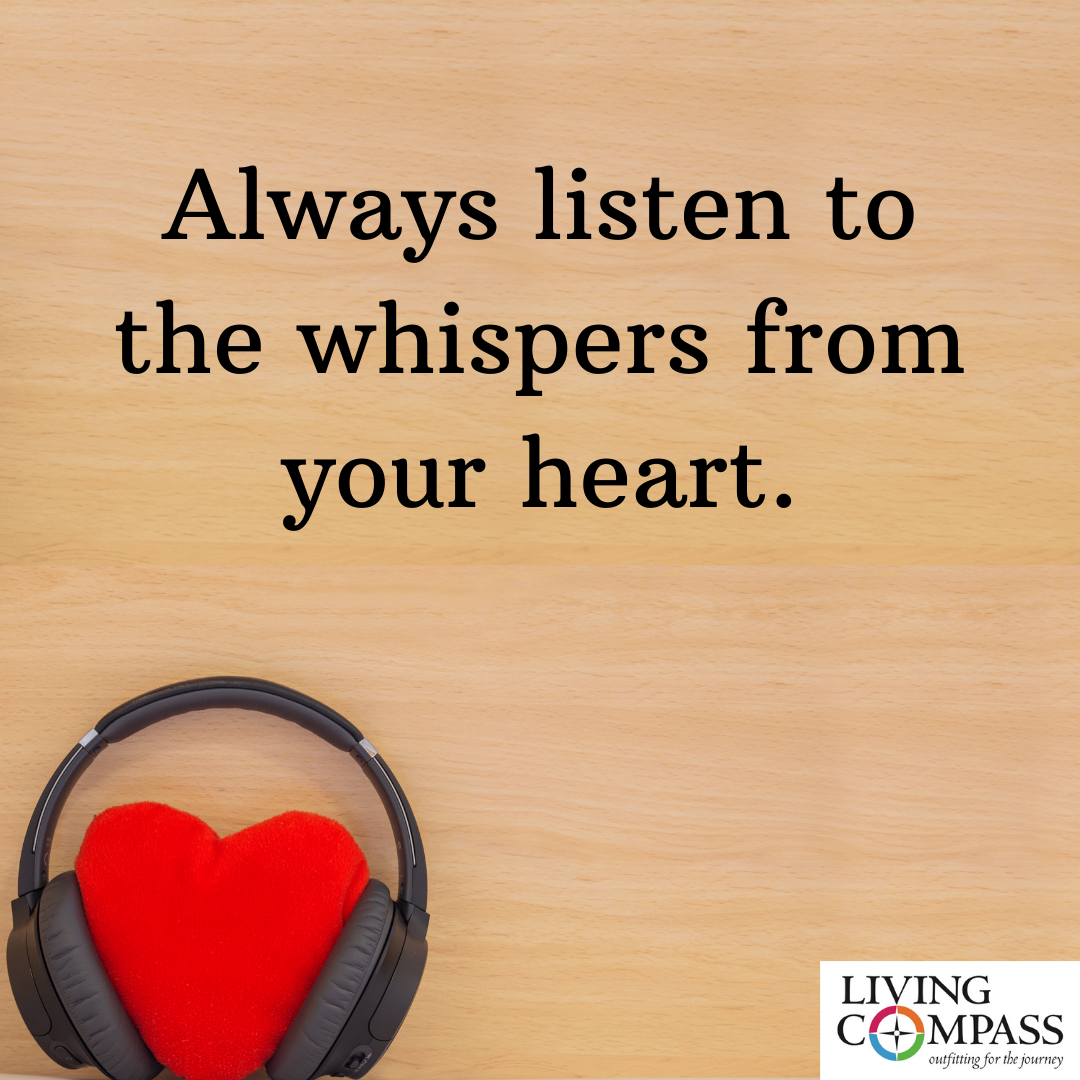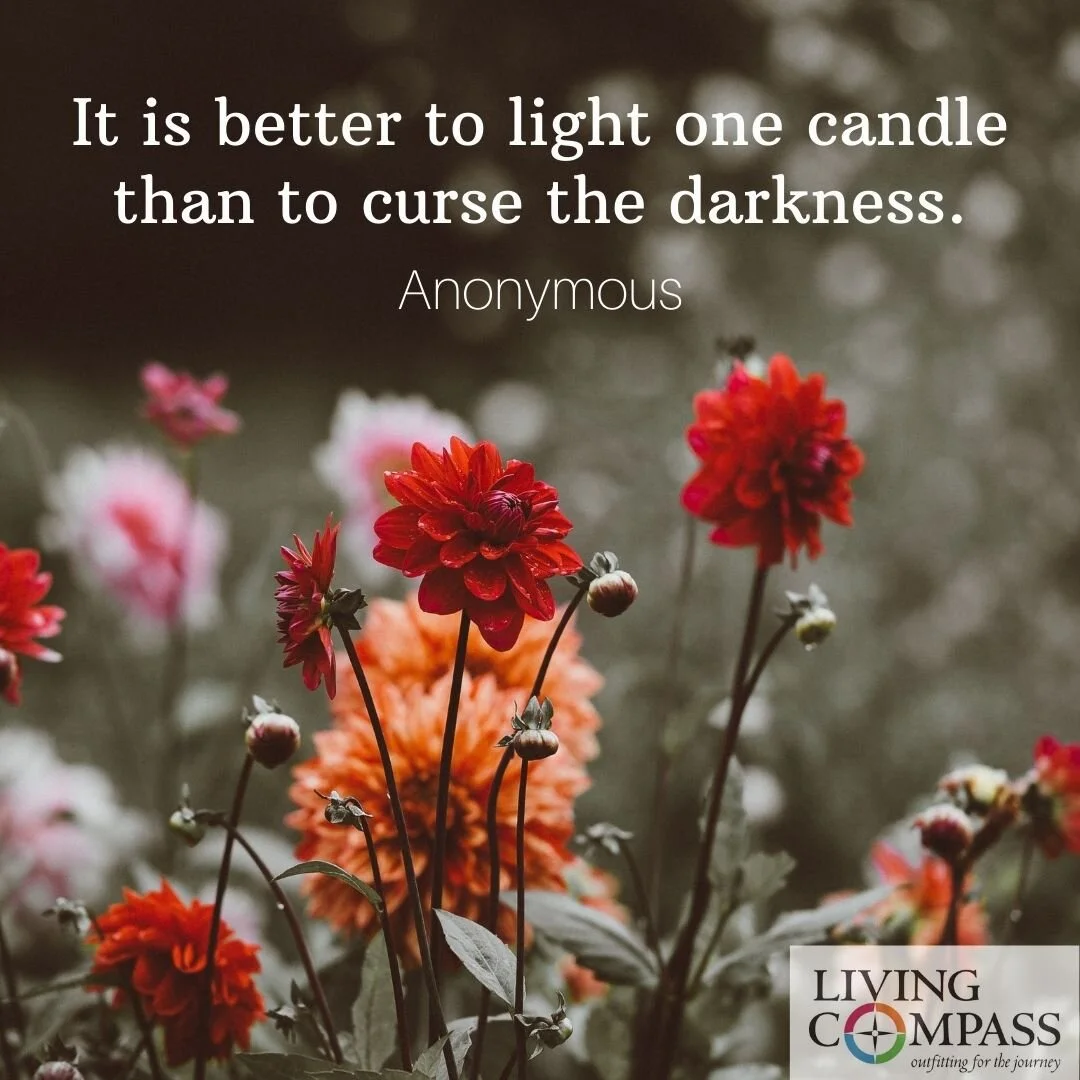Listen to the Whispers
Whether or not we make resolutions at the beginning of a new year, many of us do some taking stock of our lives this time of year, pausing to reflect on whether there are any changes we want to make. One concept for reflection that I have found to be helpful, both for myself and the clients I work with, is the idea of “listen to the whispers.” It is based on the idea that our lives are always speaking to us. The question is, “Are we listening?”
Whenever our lives get out of balance, and we are beginning to experience some kind of “dis-ease,” we will almost always first get a “whisper” that something needs to change. We experience this as a quiet voice from within telling us that something isn’t right, that something needs to change. The whisper could be something like:
“I feel a sense of emptiness like something is missing in my life.”
“This pain I am experiencing is not going away.”
“I feel like there is a distance growing between us; we’re just not as close as we used to be.”
“I think the amount of stress in my life is starting to take a toll on me.”
“I seem to be drinking more than before.”
“I’m not sure I want to stay in this job much longer.”
“I know I’m being called to get more involved in issues facing my community.”
“There are issues in our family that can no longer be ignored.”
That inner voice, that whisper that something needs to change, is easy to ignore. After all, it’s only a whisper. When a whisper is ignored, though, it seldom goes away. The usual progression is that the whisper gets louder, and gradually our inner voice begins to shout at us. What happens if the shout does not get our attention? In that case, something will eventually happen, some negative consequence, or even a crisis, something so obvious that we can no longer ignore what is happening.
When it comes to our personal and relational wellness, it is essential that we learn to listen to the whispers that tell us when something in our lives is out of balance. Healthy individuals, couples, families, leaders, and organizations do this on a regular and proactive basis. They regularly take an honest look in the mirror. And because they know that even then, they can still fool themselves, they regularly seek out honest feedback from others whom they trust. They build open feedback loops into their lives so that they can adapt and respond to any warning signs that emerge. It all starts with being willing to let our lives speak to us and being willing to listen to the whispers that announce that something needs to change.
The benefits of listening and responding are enormous--growth, healing, joy, abundance, peace. The costs of not listening and responding are also enormous, as most whispers, when ignored, turn into shouts or crises.
So what whispers are each of us hearing right now in our own lives? Are we able to be quiet long enough to listen to them? And when we listen to them, will we have the courage to make a proactive change, even if that change is uncomfortable at first?
Subscribe Now to Weekly Words of Wellness:
Click the button below to signup for the e-mail version of Weekly Words of Wellness. This weekly article can be shared with your community electronically and/or used for group discussion.
You can unsubscribe at any time.




